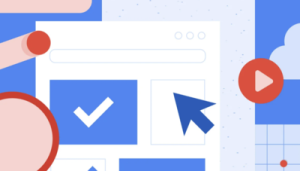Caffeine is a staple in many people’s daily routines, especially across the UK. Found in coffee, tea, fizzy drinks, chocolate, and more, it's praised for boosting alertness and energy. However, growing research suggests that caffeine may also play a role in increasing anxiety levels, particularly in sensitive individuals or those with pre-existing mental health conditions. As a stimulant, caffeine activates the central nervous system, which may trigger symptoms like a racing heart, restlessness, and heightened stress. While moderate intake is generally safe, excessive or poorly timed consumption can negatively impact your mental well-being. Here’s what science says about caffeine and anxiety.
Caffeine can worsen existing anxiety disorders: Understanding the link
For individuals living with generalised anxiety, social anxiety, or panic disorder, caffeine can significantly amplify existing symptoms. A systematic review and meta-analysis published in General Hospital Psychiatry examined the acute effects of caffeine on panic attacks and subjective anxiety in patients with panic disorder and healthy controls. The analysis included nine studies involving 237 patients with panic disorder.
The findings revealed that more than half of these patients experienced a panic attack following caffeine ingestion, while none had a panic attack after placebo.
Furthermore, patients with panic disorder were found to be significantly more vulnerable to panic attacks induced by caffeine compared to healthy controls. Even when caffeine doesn't directly cause anxiety, it can exacerbate physical sensations like a racing heart and jitteriness, which may trigger or worsen panic symptoms
How caffeine affects stress, sleep, and anxiety
1. Caffeine may increase anxiety risk, even in healthy individualsEven among those without a diagnosed anxiety disorder, caffeine has been shown to increase subjective feelings of anxiety. Studies suggest that high caffeine consumption is significantly associated with a greater risk of anxiety, particularly when it disrupts sleep. Sleep plays a critical role in emotional regulation. If caffeine keeps you awake or reduces sleep quality, it can indirectly increase your anxiety levels over time.
2. The amount you consume mattersThe general recommendation for adults is to limit caffeine intake to 400 mg per day. But many common beverages contain more caffeine than expected. Those consuming 400 mg or more daily are more likely to experience anxiety than those who consume less.
3. Caffeine sensitivity varies by individualNot everyone reacts to caffeine the same way. Your genes and metabolism play a significant role:
- CYP1A2 enzyme: Determines how fast your body breaks down caffeine. Slow metabolisers feel caffeine's effects more intensely and for longer.
- ADORA2A gene: Influences how caffeine interacts with adenosine receptors. Some people feel more alert, and anxious, based on how their brain responds.
If you’re highly sensitive, even moderate amounts of caffeine can trigger jitteriness, sleep disturbances, or anxious thoughts.
4. Withdrawing from caffeine can temporarily increase anxietyCaffeine is a stimulant and psychoactive drug, which means regular use can lead to physical dependence. When you stop abruptly, you may experience withdrawal symptoms that overlap with anxiety:
Common withdrawal symptoms include:
- Headaches
- Irritability
- Fatigue
- Difficulty concentrating
- Increased heart rate
- Gastrointestinal upset
- Anxiety-like symptoms
These symptoms usually begin within 24 hours and can last up to 9 days. While unpleasant, they're temporary. Most people report feeling calmer and more balanced after withdrawal passes.
Hidden sources of caffeine to watch out for
Many people underestimate how much caffeine they consume. Besides coffee and tea, caffeine is found in:
- Energy drinks
- Fizzy drinks (like cola)
- Chewing gum
- Coffee-flavoured ice cream
- Chocolate and cocoa-based products
- Over-the-counter medications, including some painkillers and cold/flu remedies
Understanding all sources of caffeine is essential if you’re trying to reduce your overall intake and manage anxiety more effectively.
Tips for managing caffeine and anxiety
If you suspect caffeine is impacting your anxiety, here are some practical strategies:
- Track your intake: Note all sources of caffeine you consume daily.
- Reduce gradually: Tapering off caffeine can minimise withdrawal symptoms.
- Avoid caffeine after 2pm: Helps protect your sleep and reduce evening anxiety.
- Try alternatives: Herbal teas and decaf options can help satisfy cravings without overstimulating your.
- Listen to your body: If caffeine consistently leaves you feeling restless or anxious, consider cutting back.
Can drinking coffee daily affect your blood sugar levels? Here’s what you need to know
 India Enters New Space Age as Astronaut Shukla Joins ISS Mission
India Enters New Space Age as Astronaut Shukla Joins ISS Mission
 X Cracks Down: Half a Million Indian Accounts Suspended for Policy Breaches
X Cracks Down: Half a Million Indian Accounts Suspended for Policy Breaches
 Google Unveils Strategy to Combat Misinformation, Boost Voter Access in India's 2024 Elections
Google Unveils Strategy to Combat Misinformation, Boost Voter Access in India's 2024 Elections
 Hair Oil vs. Hair Serum: Which is the Right Choice for Your Hair?
Alternatively:
Unlock Your Best Hair: Choosing Between Hair Oil and Serum for a Healthy Mane
Hair Oil vs. Hair Serum: Which is the Right Choice for Your Hair?
Alternatively:
Unlock Your Best Hair: Choosing Between Hair Oil and Serum for a Healthy Mane
 Vijay Sethupathi Apologizes Amid Controversy Over Son's Film 'Phoenix'
Vijay Sethupathi Apologizes Amid Controversy Over Son's Film 'Phoenix'
 Bollywood's 'Swades' Anthem Joins Axiom-4 Mission: Indian Astronaut's Playlist Honors Heritage in Space
Bollywood's 'Swades' Anthem Joins Axiom-4 Mission: Indian Astronaut's Playlist Honors Heritage in Space
 New York Assemblyman Zohran Mamdani's Style: 5 Lessons in Authenticity and Heritage
New York Assemblyman Zohran Mamdani's Style: 5 Lessons in Authenticity and Heritage
 Colon Cancer: Don't Ignore These 5 Early Warning Signs
Colon Cancer: Don't Ignore These 5 Early Warning Signs
 TSMC Regains Top 10 Global Value Ranking Amid AI Boom
TSMC Regains Top 10 Global Value Ranking Amid AI Boom
 Android Users Urged to Update Devices Amid High-Severity Security Flaws: Government Issues Warning
Android Users Urged to Update Devices Amid High-Severity Security Flaws: Government Issues Warning